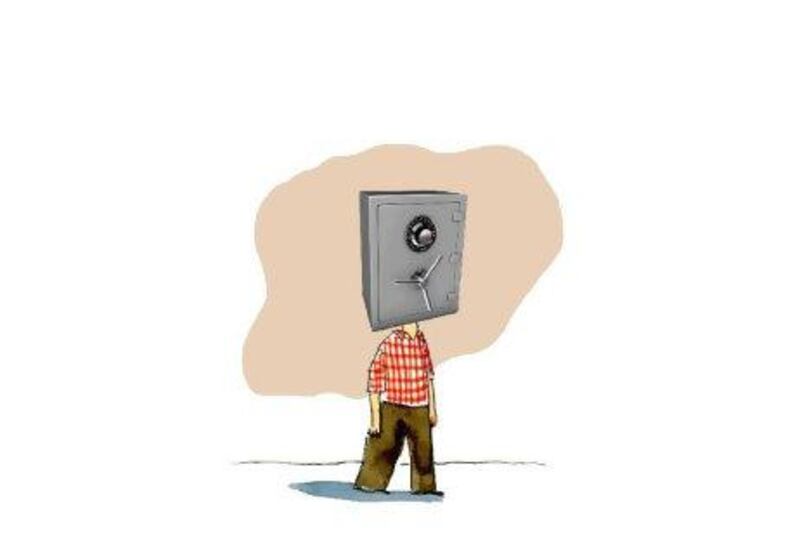A friend of mine recently got home after a long day at work and performed his nightly ritual. He placed his briefcase on the roof of his car, then leaned back into the vehicle to collect his iPod, coffee mug and any other items that had accumulated in the front seat during the day.
Only later, when his building watchman came knocking on his door in the middle of the night, did he realise he missed an important step in his routine: he forgot to retrieve his briefcase from the roof of his car. The watchman had seen someone rifling through it, and my friend rushed outside to assess the damage.
As most of us would be in this day and age, he was less worried about a common thief taking his money than he was about a more ambitious criminal walking off with his identity.
The numbers regarding identity theft are staggering, with billions of dollars lost annually to this insidious brand of fraud. And that does not include the hours of hassle incurred when even the potential for identity theft arises.
In my friend's case, the only thing missing was his credit cards. The monetary damage was, thankfully, minimal (the thief was apparently more hungry than greedy, with his sole purchase being a Dh13 value meal at Burger King).
But because of the prospect of further fraud, my friend was forced to cancel all of his bank accounts and credit cards, which made it inconvenient for him to get cash or buy goods with credit for more than a week.
His experience is a reminder of how one minor mistake can turn into a major problem, but it could have been much worse. There have been a series of much scarier stories in UAE headlines lately, as everything from terrorist plots to fraudulent plastic surgeons have been enabled by stolen passports and identification cards.
Because the reality of identity theft is so terrifying, it is often used as a scare tactic by companies looking to profit from our fear. There is a growing cottage industry of identity theft monitoring services that purport to offer protection from would-be scammers.
Most consumer advocates agree that these services are not worth the monthly fees they charge because they do not offer much more than what you can do on your own. They mostly serve to notify you that you've been victimised, rather than prevent it from happening in the first place.
In many western countries, these firms do little besides track suspicious activity through your credit report. It is likely that similar services will become prevalent in the UAE as the credit-reporting system becomes more established here.
That does not mean there are not steps each of us should take to avoid experiencing this particular nightmare. The first is simply to take special care with our most important documents. This is especially true here, where most residents are expatriates and commonly need to produce passports and other forms of identification.
My wife recently lost her passport, and she thinks she inadvertently threw it out with a pile of old newspapers after she left it on the dining room table. Lesson learnt - we now have a special spot where we store our passports as soon as we return to the apartment.
Increasingly, the most critical steps for prevention are geared towards shielding our digital information. It is becoming trickier than ever.
Many consumers from western countries hardly give a second thought to shopping online, but it is worth doing so here, where e-commerce is just now being widely offered. Some of the basic tips worth remembering are to make sure the website is fully encrypted (this is usually indicated by a URL beginning with "https") and ensuring the merchant is well-established online.
It is, of course, critical to keep as much information as possible password-protected on laptops, but it is wise not to consider that as an iron-clad solution. Experts say a password is just enough to deter an honest person from casually browsing your information, but not enough to stop a determined thief. And while those "remember me on this computer" boxes make surfing the web mighty convenient, they also enable those nefarious individuals to access credit-card data and all sorts of other personal information.
We should also be judicious about the types of documents we store on our computers, and periodically get rid of the most sensitive ones (soon after typing that sentence, I transferred my US tax return from last year to a flash drive).
For those who have no choice but to store super-sensitive data on a laptop, it could be worth considering one of the anti-theft packages that are available, which can track the machine via GPS once it has been stolen and even erase the memory remotely.
Finally, criminals trolling the web for lucrative tidbits are increasingly lurking on social networking sites such as Facebook. It is advisable to avoid posting data that someone could use in the event they want to pose as you. Common examples include birthdays, place of birth and your mother's maiden name. And consider changing passwords regularly because there is a burgeoning trade in the underworld in stolen Facebook accounts - the more friends, the better, apparently.
It is easy to get paranoid about identity theft, but the chances of being a victim are minuscule. However, the consequences of being one of the chosen few are great, so taking a few preventive steps can be invaluable.






